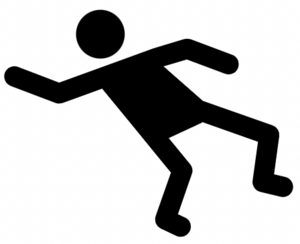Facts About Dementia Fall Risk Revealed
Facts About Dementia Fall Risk Revealed
Blog Article
More About Dementia Fall Risk
Table of ContentsTop Guidelines Of Dementia Fall RiskDementia Fall Risk for DummiesDementia Fall Risk Can Be Fun For AnyoneThe 6-Minute Rule for Dementia Fall RiskThe Main Principles Of Dementia Fall Risk
The FRAT has 3 sections: fall danger condition, risk element list, and activity strategy. A Loss Risk Condition consists of information concerning history of recent falls, drugs, emotional and cognitive condition of the patient - Dementia Fall Risk.If the patient scores on a risk element, the matching number of factors are counted to the individual's loss risk score in the box to the much. If a client's autumn risk score amounts to five or greater, the individual goes to high danger for falls. If the individual ratings just four factors or reduced, they are still at some risk of falling, and the nurse should utilize their ideal clinical evaluation to manage all loss risk factors as component of an all natural treatment strategy.
These typical approaches, in general, assist create a risk-free environment that minimizes unintentional falls and marks core precautionary actions for all clients. Indicators are crucial for clients at danger for drops.
The Basic Principles Of Dementia Fall Risk
For example, wristbands ought to include the individual's last and given name, day of birth, and NHS number in the UK. Details must be printed/written in black versus a white history. Only red color should be utilized to indicate special client status. These recommendations are consistent with current growths in person recognition (Sevdalis et al., 2009).
Products that are too far may call for the person to connect or ambulate needlessly and can potentially be a hazard or add to drops. Assists avoid the individual from heading out of bed with no support. Nurses respond to fallers' phone call lights quicker than they do to lights launched by non-fallers.
Aesthetic disability can considerably trigger falls. Hip pads, when put on effectively, might minimize a hip fracture when loss occurs. Keeping the beds closer to the flooring minimizes the danger of falls and significant injury. Putting the mattress on the floor significantly lowers autumn risk in some healthcare setups. Low beds are made to minimize the distance a client drops after moving out of bed.
Some Known Details About Dementia Fall Risk
Patients who are tall and with weak leg muscle mass that try to sit on the bed from a standing position are likely to fall onto the bed because it's as well reduced for them to decrease themselves securely. If a high individual efforts to obtain up from a reduced bed without aid, the patient is likely to fall back down onto the bed or miss the bed and fall onto the floor.
They're developed to promote timely rescue, not to avoid falls from bed. Distinct alarms can likewise remind the patient not to stand up alone. Using alarm systems can additionally be a replacement for physical restrictions. Other than bed alarm systems, increased guidance for high-risk individuals additionally might assist prevent drops.

Clients with a shuffling gait increase loss opportunities dramatically. To minimize autumn risk, footwear must be with a little to no heel, thin soles with slip-resistant tread, and support the ankles.
3 Simple Techniques For Dementia Fall Risk
Individuals, specifically older adults, have actually lowered visual capacity. Lights an unknown setting helps increase exposure if the patient need to rise at night. In a research study, homes with adequate illumination record fewer falls (Ramulu et al., 2021). Enhancement in illumination at link home might reduce loss prices in older adults (Dementia Fall Risk). Using gait belts by all healthcare service providers can advertise safety when helping clients with transfers from bed to chair.

Caretakers are reliable for guaranteeing a protected, secured, and secure atmosphere. However, studies showed really low-certainty evidence that sitters decrease loss threat in severe treatment hospitals and just moderate-certainty that choices like video monitoring can lower sitter usage without boosting loss danger, suggesting that sitters are not as helpful as originally believed (Greely et al., 2020).
Facts About Dementia Fall Risk Uncovered

Increased physical fitness decreases the risk for drops and restricts injury that is suffered when fall takes place. Land and water-based exercise programs may be in a similar way helpful on equilibrium and gait and consequently decrease the risk for drops. Water workout may add a positive benefit on equilibrium and stride for ladies 65 years and older.
Chair Rise Workout is a basic sit-to-stand workout that helps reinforce the muscle mass in the thighs and buttocks and enhances wheelchair and independence. The objective is to do Chair Rise workouts without making use of look at here now hands as the client becomes more powerful. See sources area for a thorough instruction on exactly how to carry out Chair Surge workout.
Report this page